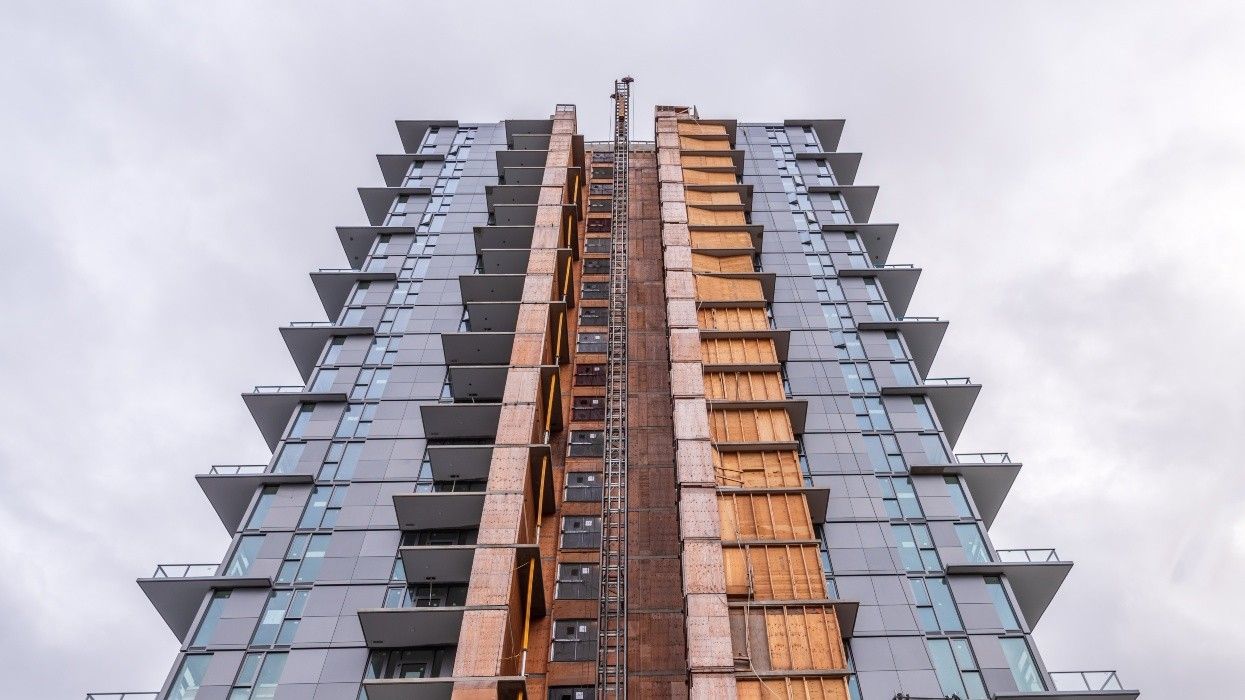After announcing a wave of new housing-focused legislation last fall that local governments only recently completed implementing (mostly), the Province announced yet another new piece of legislation on April 3, which it said builds upon and works alongside the previous legislative changes.
This new piece of legislation is Bill 16, the Housing Statutes Amendment Act, provides local governments with "new and updated tools to enact bylaws that support proactive planning" and are tools related to inclusionary zoning, density bonuses, tenant protections, and site-level infrastructure.
"These new legislative changes, signalled last fall, are part of the shift toward proactive planning to build more housing and provide more certainty and transparency instead of drawn-out and costly rezoning processes," the Province said in April.
The Province did not provide guidance on what local governments need to do to implement the changes and take advantage of the new tools, however, until August 23, when it quietly published — without a press release — "interim guidance" for local governments, with "comprehensive" guidance expected in early-2025.
Inclusionary Zoning
"Inclusionary zoning is a new tool that allows local governments to require affordable housing as a component of new residential developments, without the need for a rezoning," the Province says. "These affordability expectations would be set up-front in an inclusionary zoning bylaw (IZ bylaw), providing more transparency and certainty for the development process."
According to the Province's interim guidance, to implement this new tool, local governments will need to:
- adopt an IZ bylaw and set out specific requirements including the amount of affordable units, tenure, price, and length of time that the units must comply with these requirements;
- undertake consultation, a financial feasibility analysis, and consider the most recent housing needs report, when developing the IZ bylaw;
- report affordable housing contributions annually;
Along with these requirements, local governments also have the option to:
- vary the inclusionary zoning requirements by area, site, and development type (such as the size, tenure or construction materials); and
- collect cash-in-lieu of the affordable units and may allow for the affordable units to be provided on another site.
Additionally, the Province also says that such inclusionary zoning bylaws cannot be applied to non-market housing developers and that BC's Island Trust communities — except Bowen Island — cannot use them.
Density Bonuses
A density bonus is a mechanism that provides the developer with the option to build to a higher density, in exchange for providing amenities or affordable housing. Like inclusionary zoning, it already exists in some cities, such as Vancouver, but the Province wants to "enhance clarity in its use and consistency with inclusionary zoning."
The new legislative changes will require local governments to:
- consult with impacted groups and prepare a financial feasibility analysis when developing or amending density bonus bylaws (DB bylaws); and
- prepare annual reports on affordable housing contributions and amenities obtained from DB bylaws.
They also have the option to:
- collect cash in-lieu of affordable housing units and amenities, or agree for the affordable housing units to be on a different site as set out in a DB bylaw.
The Province says these changes will come into effect on a date set by the Lieutenent Governor in Council, which will be on or after June 30, 2025, and that all existing density bonus bylaws must comply with Bill 16 by that date.
In the interim, the Province says local governments can amend their density bonus bylaws before that date, but that they must comply with Bill 16 and that — in either case (before or after the enactment date) — local governments may use a financial feasibility analysis that was completed before June 30, 2025 to inform their bylaw updates.
What Happens Next
Inclusionary zoning and density bonuses intersect in various ways, but perhaps the most notable way for local governments is as it relates to transit-oriented areas (TOAs).
After announcing the legislation on April 3, Bill 16 received Royal Assent on April 25, after which local governments were allowed to use inclusionary zoning to impose affordable housing requirements within or above the minimum allowable densities in transit-oriented areas (TOAs).
The two tools will also be stackable.
"Local governments can stack density bonus higher than inclusionary zoning densities in TOAs to maximize affordable housing outcomes," the Province says, while also noting that this is "subject to applicable Provincial or Federal statutes, the provisions of which supersede or have a limiting effect on the minimum allowable density framework."
After the enactment date (June 30 or later), however, local governments can only apply density bonusing on densities greater than the minimum allowable densities under the TOA regulations of Bill 47.
Other aspects of Bill 16 include changes regarding tenant protections.
"Bill 16 provides municipalities with the authority to develop tenant protection bylaws to require developers to provide added support for tenants facing displacement in cases of redevelopment," the Province says. "This includes financial assistance, moving assistance, help to find a new place to live, or the right to enter into a new tenancy agreement with the owner in another building."
The Province adds that tenant protection bylaws can work in tandem with inclusionary zoning and density bonus bylaws, but also recognize how they could negatively impact development if applied improperly.
"Municipalities will need to assess how the implementation of multiple tools could affect the overall viability of new residential developments," the Province says. "If both Tenant Protection Bylaws and inclusionary zoning apply to the same development, their requirements should not be stacked on top of one another."
The Province says further policy guidance on best practices for operating tenant protection bylaws, inclusionary zoning bylaws, and density bonus bylaws in conjunction with one another will be provided at a later date.





















